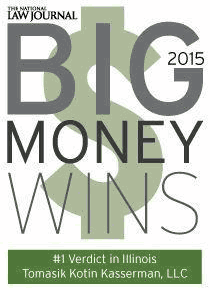Choose Wisely: Owners Have a Duty to Say No to Unsafe Drivers
“Can I borrow your car?” is a phrase nearly every car owner has been asked at one time or another. While handing over the keys to a friend in need may seem like the courteous thing to do, it is important to remember that you are trusting the other driver to operate your car safely. Tragically, this all-too-common courtesy can have drastic and life altering consequences for the owner when the driver borrowing the car is not properly qualified to operate it.
In the automobile context, the law governing owner liability in this scenario is called “negligent entrustment.” Negligent entrustment involves the lending of one person’s car to another when the lender knew or should have known that the borrowing driver was not qualified to use the vehicle. Under these circumstances, the law imposes a duty not just on the driver borrowing the keys, but also on the owner. Essentially, when the owner knew or should have known that the driver was not qualified to operate the car, the owner will be liable for the negligent acts of the trustee (driver) resulting in harm to others. Typically, whether the owner “knew” the driver was unqualified hinges on whether the owner was aware of multiple prior traffic offenses or vehicular crashes.
Negligent entrustment law in Illinois is premised upon the general liability for Negligent Entrustment as defined in the Restatement (Second) of Torts:
It is negligent to permit a third person to use a thing or to engage in an activity which is under the control of the actor, if the actor knows or should know that such person intends to use the thing or to conduct himself in the activity in such a manner to create an unreasonable risk or harm to others. (citing [RESTATEMENT (SECOND) OF TORTS § 308 (1965)].
Illinois law requires that a victim injured as result of someone negligently entrusting their vehicle to another to demonstrate that: (1) the owner entrusted a dangerous instrumentality (car), (2) that the entrustment was to a driver who was reckless or inexperienced, and (3) that entrustment caused injury to the victim. To hold the trustor (owner) liable for the actions of the driver (trustee), the injured victim must also demonstrate that the trustor had a superior right of control over the car and that the owner knew or should have known that the individual that borrowed the car was incompetent, unsafe and/or unfit to operate and drive the car.
Demonstrating a superior right to control the car is easily established by proving that the owner purchased the vehicle, paid for its insurance and was titled in the owner’s name. Of course, the victim must demonstrate that the driver was given permission to operate the vehicle.
There are a variety of scenarios through which a victim can demonstrate during the trial that the driver was not competent or was inexperienced. Some examples include evidence that the driver did not have a valid driver’s license, had received multiple traffic violations in the past, and of course, that the driver was involved in prior car crashes. Ultimately, borrowing a car to someone with a suspended or revoked license is a very strong basis to bring a claim against the owner of a car.
At Tomasik Kotin Kasserman we have successfully represented victims who have been catastrophically injured or killed as a result of a vehicle owner’s failure to recognize that the person borrowing the car is unfit to drive. When tragedy strikes and innocent passengers and drivers are injured, it is necessary to fully investigate the circumstances surrounding the crash to determine if the driver may have been negligently entrusted with the vehicle.

 312-605-8800
312-605-8800




 312-605-8808
312-605-8808






